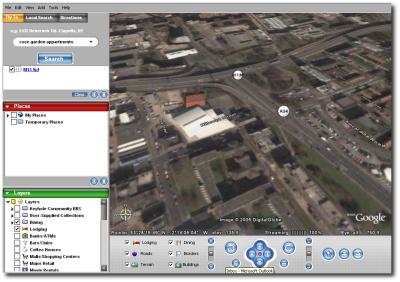 PEN formats are based upon a standardised specifications, which ensure global collaboration among applications. Without common formats, hardware are software are simply unable to communicate, unless they come from the same vendor. Formats are also analogous to the notion of a language, or technically speaking, “protocols” and “standards”. They are often agreed upon by an ample panel, which involves industry experts and industry/academy leaders.
PEN formats are based upon a standardised specifications, which ensure global collaboration among applications. Without common formats, hardware are software are simply unable to communicate, unless they come from the same vendor. Formats are also analogous to the notion of a language, or technically speaking, “protocols” and “standards”. They are often agreed upon by an ample panel, which involves industry experts and industry/academy leaders.
What happens, however, when a company goes astray and implements its own formats, which it is unwilling to disclose for competitive reasons? What happens when a format is extended without acceptance by others who already use and depend on it? When common language is violated, disaster is foreseen. An industrial majority (or a monopoly) can use miscommunication as a ‘tool’ which drives competitors away. The temptation to use that tool as a weapon is often there, yet the seminal formats must always be honoured. If not, conversion facilities must be made available, so that a non-lossy route can be followed to ‘sanitise’ the unknown data structures and appendages.
 I have already complained about proprietary formats that lock one’s personal data. The context in this blog was Palm-powered devices, as well as software packages from Microsoft. It is a terrible scenario when one chooses an appliance or a software package over open formats and is thereafter obliged to use it perpetually. It is an utter lock-in, which has even reached the Web that is openness-motivated. Internet Explorer-only beame more commonplace, yet Firefox has shouted out for a change in recent years.
I have already complained about proprietary formats that lock one’s personal data. The context in this blog was Palm-powered devices, as well as software packages from Microsoft. It is a terrible scenario when one chooses an appliance or a software package over open formats and is thereafter obliged to use it perpetually. It is an utter lock-in, which has even reached the Web that is openness-motivated. Internet Explorer-only beame more commonplace, yet Firefox has shouted out for a change in recent years.
Let us illustrate the primary contention with the aid of yet another specific example. In question are the advantages of open fromat and exportable data, so let us consider address book (contacts) data on a variety of platforms. I currently hold my address books on Palm’s Address, KDE’s KMail, and Mozilla Thunderbird. Maybe I base my statements on the wrong factors, but experience shows that address confusion and poor organisation skills are prevalent among those that still rely on Microsoft to organise and manage their data. I used to be among those who delegate data organisation to applications (packages) rather than formats. As a consequence, I struggled to move between application, inter-operate or even decipher my own data in the absence of one particular commercial application. Sounds familiar?
In summary, as food for thoughts to ponder: maybe it’s the obscurity of moving data without adherence to standard formats. Maybe it is the lack of import/export utilities and maybe frequent hard-drive re-formatting due to virus attacks and the like. Either way, Linux and Mac users appear to have extensive data which is easily-locatable, inter-changeable, rocoverable and resilient. Openness entails true benefits, which are better understood in the long term.
 OME time ago I linked to a screenshot showcasting Boot Camp. This involved Mac OS X, Ubuntu Linux, and Windows running simultaneously. There now exists a public video, which illustrates this rather exciting experience. Well, it is exciting to folks like me…
OME time ago I linked to a screenshot showcasting Boot Camp. This involved Mac OS X, Ubuntu Linux, and Windows running simultaneously. There now exists a public video, which illustrates this rather exciting experience. Well, it is exciting to folks like me…





 Filed under:
Filed under: 
 SING virtualisation software, someone from Hungary illustrates how Mac OS X, Linux, and Windows can be worked on simultaneously (
SING virtualisation software, someone from Hungary illustrates how Mac OS X, Linux, and Windows can be worked on simultaneously (
 ACH platform (including its distribution and/or version) can often be characterised by its default wallpaper (background picture), among other visual signatures such as the login screen and icons set. Here is a nice and fairly complete
ACH platform (including its distribution and/or version) can often be characterised by its default wallpaper (background picture), among other visual signatures such as the login screen and icons set. Here is a nice and fairly complete  PEN formats are based upon a standardised specifications, which ensure global collaboration among applications. Without common formats, hardware are software are simply unable to communicate, unless they come from the same vendor. Formats are also analogous to the notion of a language, or technically speaking, “protocols” and “standards”. They are often agreed upon by an ample panel, which involves industry experts and industry/academy leaders.
PEN formats are based upon a standardised specifications, which ensure global collaboration among applications. Without common formats, hardware are software are simply unable to communicate, unless they come from the same vendor. Formats are also analogous to the notion of a language, or technically speaking, “protocols” and “standards”. They are often agreed upon by an ample panel, which involves industry experts and industry/academy leaders. I have already complained about proprietary formats that lock one’s personal data. The context in this blog was
I have already complained about proprietary formats that lock one’s personal data. The context in this blog was  recently volunteered to take browser compatibility more seriously. I never truly believed there was a place for platform discrimination. However, refusal to upgrade from Internet Explorer to Firefox is
recently volunteered to take browser compatibility more seriously. I never truly believed there was a place for platform discrimination. However, refusal to upgrade from Internet Explorer to Firefox is 
 FTER several months of waiting, the
FTER several months of waiting, the 